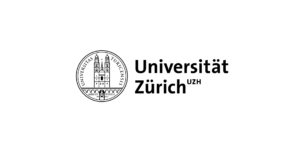Explore Fully Funded PhD opportunities at the Universität Stuttgart, Stuttgart, Germany across a range of departments. Apply now to be considered for these prestigious positions.
1. Fully Funded PhD Programs in Understanding the Seasonal Variation of Greenhouse Gas Production in Wastewater Treatment Plants
Summary of PhD Project
Wastewater treatment plants (WWTPs) are estimated to contribute 8 – 11% of the methane and 2.7% of the nitrous oxide global gas emissions. Methane and nitrous oxide are greenhouse gases (GHG) and are 27 and 273 times more potent than CO2, respectively (Intergovernmental Panel On Climate Change (IPCC), 2023). Additionally, nitrous oxide is considered to be the major anthropogenic contributor to the depletion of atmospheric ozone (Gruber, Von Känel, et al., 2021).
Application Deadline: 01 Oct 2025
Never Miss a Fully Funded PhD Programs!
Join our Telegram & WhatsApp Channels for Daily Updates.
2. Fully Funded PhD Programs in Real-time COD Monitoring for Sustainable Water Management
Summary of PhD Project
Reliable monitoring and control of water systems is essential to protect water resources, ensure hygienic standards, and enable sustainable infrastructure operation. As challenges evolve — including emerging contaminants like PFAS, antibiotics, and micropollutants, along with climate-induced fluctuations and energy efficiency demands — water technologies must become more adaptive and forward-looking.
Application Deadline: 01 Oct 2025
Explore Fully Funded PhD Programs in United Kingdom
3. Fully Funded PhD Programs in Interactions of Microplastics and Micropollutants in Water and Agricultural Soils
Summary of PhD Project
Microplastics are ubiquitous in the environment due to their versatility and the large quantities in which they are produced and used. At the same time, global consumption and industrial production continue to rise – not only of plastics but also of synthetic chemicals. As a result, the number and amount of so-called micropollutants in the environment are steadily increasing. Among these micropollutants, per- and polyfluoroalkyl substances (PFAS) are of particular concern. Like microplastics, PFAS are highly persistent, mobile, and widely distributed, even in remote areas.
Application Deadline: 01 Oct 2025
Explore Fully Funded PhD Programs in Europe
4. Fully Funded PhD Programs in Identification of Surfactant Impacts on Microbial Glyphosate Degraders in Freshwater Sediments
Summary of PhD Project
The PhD project will identify glyphosate-based surfactant impacts on microorganisms from freshwater sediments, e.g., rivers or ponds, that are capable of degrading glyphosate. In particular, aerobic and anaerobic cultivation techniques will be used to enrich and isolate the target organisms. Subsequently, cultivation experiments will be used to unravel surfactant impacts on isolated microbial key players. Microcosm studies will be performed to identify surfactant impacts on complex microbial communities in freshwater sediments using a suite of biogeochemical and molecular tools (e.g., 16S rRNA gene sequencing, metagenomics, and metatranscriptomics).
Application Deadline: 01 Oct 2025
Explore Fully Funded PhD Programs in United States
5. Fully Funded PhD Programs in HydroFusion: Open-Source Solver Coupling of Shallow-Water and Porous-Media Flow
Summary of PhD Project
Water can move in two interconnected realms: the fast, visible rivers at the surface and the slower, pressure-driven flow within substrates. Today, engineers can model each realm separately, yet a reliable, open-source tool integrating a shallow-water solver and a multiphase porous-media solver within the same framework is missing. Without this coupling, it is not possible to predict how oxygen, nutrients, pollutants, or fine sediments migrate between surface water and the bed, or to quantify how restoration actions affect life-sustaining processes such as fish spawning and methane oxidation.
Application Deadline: 01 Oct 2025
Never Miss a Fully Funded PhD Programs!
Join our Telegram & WhatsApp Channels for Daily Updates.
6. Fully Funded PhD Programs in End-to-End Hydrological Modelling Using Machine Learning
Summary of PhD Project
The majority of hydrological models rely heavily on the principle of mass balance, often represented through Ordinary Differential Equations (ODEs). These models encapsulate the conservation of mass within hydrological systems, ensuring that the inflows, outflows, and storage changes are accurately accounted for. This fundamental principle, coupled with assumed relationships between various components of the hydrological cycle (such as precipitation, evapotranspiration, runoff, and infiltration), forms the core of traditional hydrological modeling approaches. Although powerful, these models often use simplified, linearized assumptions, limiting their capacity to capture the nonlinear complexities inherent in real-world hydrological processes.
Application Deadline: 01 Oct 2025



